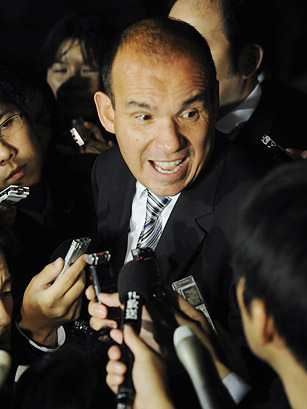
Michael Woodford could have spent years turning a blind eye to the shady dealings of corporate executives at Olympus. Instead, after an eight month stint as chief executive of the camera and medical imaging company in Japan, he dove headfirst into allegations of corporate misconduct drudged up by an obscure Japanese magazine, Facta. Though it got him fired, Woodford's snooping did eventually pay off. His revelations unearthed a massive $1.7 billion fraud at the 94-year old firm, which sparked investigations across three continents and turned the international spotlight onto Japan's shady corporate governance. For months, it seemed Woodford's gamble — challenging a tight corporate cabal that traded on loyalty above all else — might be all for naught. The company chalked up his firing to a cultural clash (Woodford is British) and commissioned a panel of insiders to investigate. But the tide turned after the panel's Dec. 6 report blasted Olympus managers for being "rotten to the core" and laid bare the company's misdeeds: hiding 1980s bubble-era losses by buying shell companies and using deceptive accounting. Now a shakeup of directors and executives could bring Woodford back to help right Olympus's ship. Whatever happens, the world's corporate cronies have been duly reminded that sometimes loyalty comes at a price.